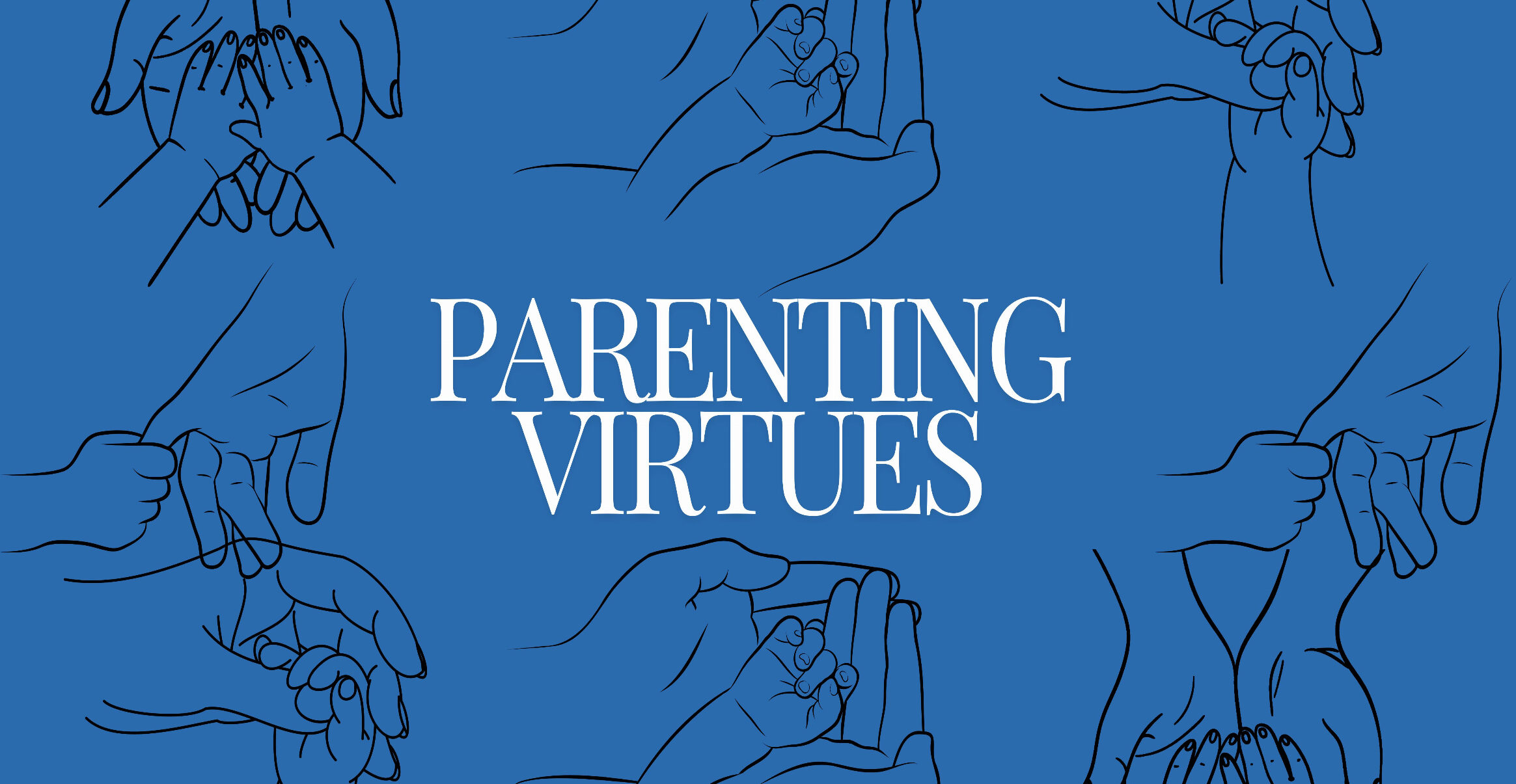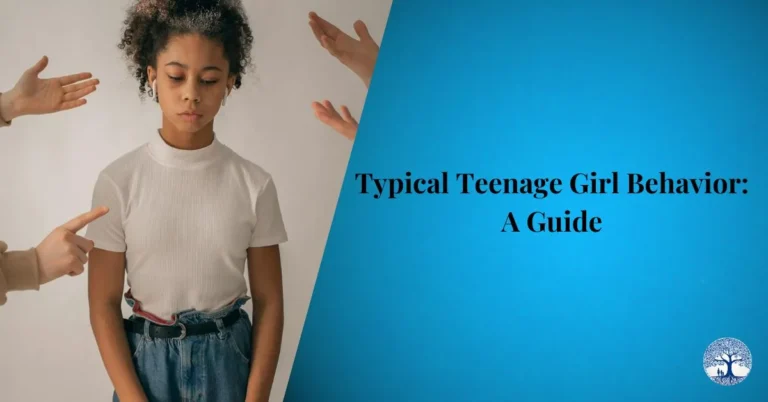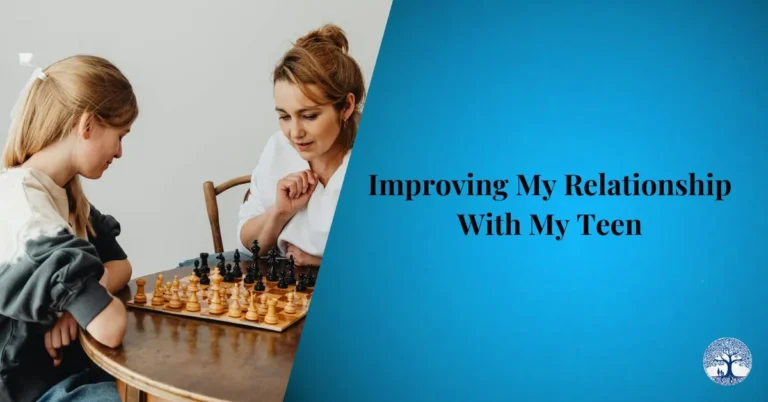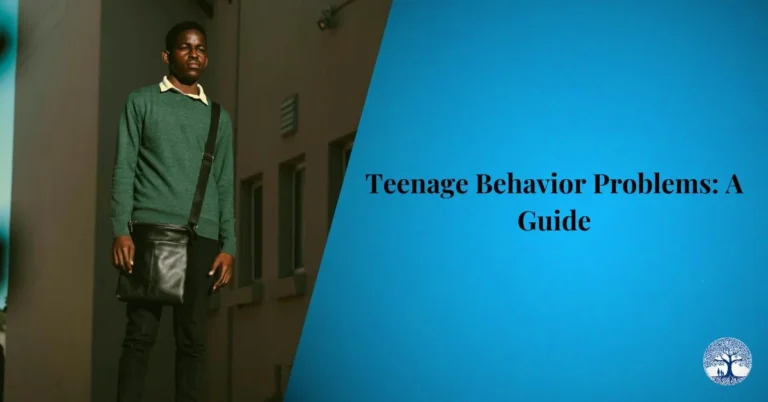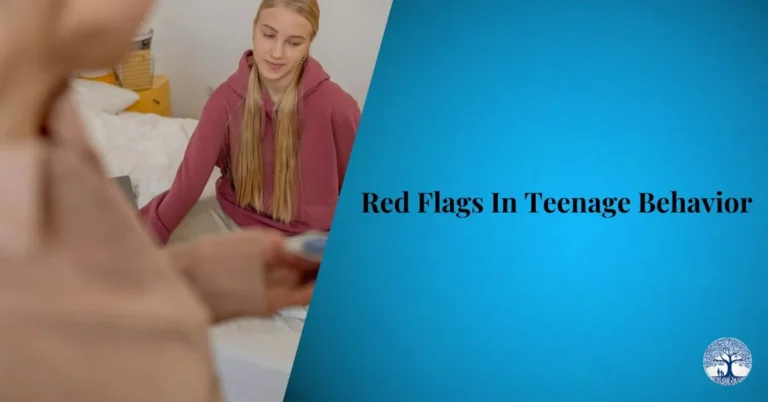Introduction
Parenting teenagers can feel like navigating uncharted territory, especially when faced with sudden mood swings, defiance, or social withdrawal. These behavioral shifts can be confusing and frustrating for parents who want the best for their children but aren’t sure how to respond effectively. Understanding why these behaviors occur and how they fit into the broader picture of adolescent development is crucial for fostering a supportive and healthy environment at home. In this post, we’ll explore some of the most common teenage behavioral issues, from emotional outbursts to risky behaviors, and provide practical insights into how parents can address these challenges while maintaining open communication and strong family bonds.
Understanding Teenage Development
Physical and Emotional Changes
During adolescence, the physical and emotional transformations that teens undergo are profound and often overwhelming. Puberty triggers a surge of hormones that not only change their bodies but also significantly influence their emotions and behaviors. This hormonal flux can lead to mood swings, irritability, and heightened sensitivity, making it challenging for teens to manage their feelings effectively. Additionally, the adolescent brain is still developing, particularly in areas related to decision-making and impulse control. This ongoing brain development can result in risk-taking behaviors, as teens may struggle to fully assess the consequences of their actions. Understanding these changes is essential for parents as they navigate their child’s sometimes erratic behavior, offering support and guidance during this tumultuous period.
Social Pressures
The teenage years are marked by an increased sensitivity to social influences, with peer groups, social media, and broader cultural expectations playing a pivotal role in shaping behavior. Teens are deeply invested in how they are perceived by others, often leading to a strong desire to fit in or gain approval from their peers. This can manifest in behaviors ranging from conforming to peer pressure to engaging in activities that align with social trends, even when they conflict with parental values. Social media amplifies these pressures, creating a constant comparison to idealized images and lifestyles that can impact self-esteem and identity formation.
Additionally, adolescence is a time of intense identity exploration, where teens begin to question who they are and where they fit in the world. This quest for identity can lead to experimentation with different behaviors and attitudes as they try to define themselves, often resulting in behavior that parents may find puzzling or concerning. Understanding these social dynamics is key to supporting teens as they navigate the complexities of growing up in a connected world.

Common Teenage Behavioral Issues
Mood Swings and Emotional Outbursts
Mood swings and emotional outbursts are some of the most common and perplexing behaviors parents observe in teenagers. These emotional fluctuations are often triggered by the hormonal changes of puberty, but they can also be influenced by stress, lack of sleep, and social challenges. It’s normal for teens to experience heightened emotions as they navigate the complexities of growing up. However, it’s important for parents to recognize when these mood changes might signal deeper issues, such as depression or anxiety. Persistent sadness, withdrawal from activities they once enjoyed, or drastic changes in behavior may indicate that a teen needs more support than just a listening ear.
Defiance and Rebellion
Rebellious behavior is a hallmark of adolescence, often manifesting as defiance against rules and authority. Teens may argue more frequently, reject parental guidance, or engage in behaviors they know are against the rules. This defiance is usually rooted in a desire for independence and self-expression as teens struggle to establish their own identities. While some level of rebellion is a normal part of growing up, parents should be aware of the underlying reasons, which can range from frustration with perceived restrictions to deeper emotional struggles. Understanding the motivations behind a teen’s defiance can help in addressing the behavior constructively, rather than escalating conflicts.
Academic Challenges
Academic challenges can surface during the teenage years, sometimes unexpectedly. Teens might begin to show declining grades, a lack of motivation to complete schoolwork, or even signs of school anxiety. These issues are often compounded by the stress and pressure to succeed, whether self-imposed or from external expectations. The transition to more demanding coursework and the balancing act between academics and social life can overwhelm teens, leading to procrastination or avoidance. It’s crucial for parents to identify these academic struggles early and understand that they might be a cry for help, rather than just laziness or disinterest.

Social Withdrawal and Isolation
Social withdrawal and isolation can be troubling signs that a teenager is grappling with deeper issues. Teens might begin to distance themselves from family and friends, spending more time alone or avoiding social interactions altogether. This behavior could be a response to feelings of inadequacy, anxiety, or depression, or it could stem from negative experiences with peers. It’s important for parents to gently explore the reasons behind their teen’s withdrawal and offer support, whether through open conversations or by seeking professional help if necessary.
Risky Behaviors
Engaging in risky behaviors, such as experimenting with substances, engaging in early sexual activity, or participating in reckless actions, is another common issue among teenagers. These behaviors are often driven by a combination of curiosity, peer influence, and the thrill-seeking tendencies that are heightened during adolescence due to ongoing brain development. While some risk-taking is a normal part of exploring boundaries, parents should be alert to behaviors that could have serious consequences and take steps to educate their teens about the potential dangers.
Internet and Social Media Addiction
In today’s digital age, excessive screen time and internet use can quickly evolve into an addiction, significantly impacting a teen’s behavior and mental health. Teens might develop an unhealthy attachment to their devices, leading to issues like sleep deprivation, reduced physical activity, and social isolation. The constant bombardment of information and social comparison on platforms like social media can exacerbate feelings of anxiety or inadequacy. Parents should be aware of the signs of internet addiction, such as a teen becoming irritable or anxious when not online, and encourage a balanced approach to technology use, promoting offline activities and face-to-face interactions.
Factors Contributing to Behavioral Issues
Parenting Styles
The way parents interact with and guide their children plays a significant role in shaping teenage behavior. Different parenting styles, such as authoritarian, permissive, and authoritative, can influence how teens respond to rules, authority, and challenges. Authoritarian parents, who enforce strict rules with little flexibility, might find their teens becoming more rebellious or secretive as they seek autonomy. On the other hand, permissive parents, who set few boundaries, may observe their teens struggling with self-discipline and responsibility.
The authoritative approach, which balances clear expectations with empathy and open communication, is often associated with more positive outcomes, as it fosters independence while providing the support teens need. Understanding how parenting styles impact behavior can help parents adjust their approach to better support their teen’s development.
Environmental Stressors
The environment in which a teenager grows up can have a profound impact on their behavior. Family dynamics, including the relationship between parents and siblings, can create a home atmosphere that either nurtures or strains a teen’s emotional well-being. For example, constant conflict or a lack of communication within the family can lead to feelings of insecurity or frustration, which may manifest as behavioral issues.
Financial stress is another significant factor; the pressure of economic instability can create anxiety and tension that affects a teen’s ability to focus and cope with challenges. Additionally, external pressures such as academic demands, social expectations, and exposure to trauma or loss can contribute to behavioral problems, making it essential for parents to recognize these stressors and address them proactively.
Mental Health and Genetics
Mental health and genetics also play critical roles in the development of teenage behavioral issues. Some teens may be predisposed to certain behaviors due to hereditary factors, such as a family history of mental health disorders like depression, anxiety, or ADHD. These genetic predispositions can influence how a teen reacts to stress, processes emotions, and interacts with others. Mental health disorders, whether inherited or developed due to environmental factors, can exacerbate typical adolescent struggles, leading to more pronounced behavioral issues. Recognizing the potential impact of genetics and mental health on behavior is crucial for early intervention and support, ensuring that teens receive the appropriate care and resources to manage their challenges effectively.

How to Address Teenage Behavioral Issues
Open Communication
One of the most effective ways to address teenage behavioral issues is through open communication. Fostering an environment where teens feel comfortable expressing their thoughts and emotions without fear of judgment is crucial. Parents can encourage this by practicing active listening—truly hearing what their teen is saying without interrupting or immediately offering solutions. Empathy plays a key role here; understanding a teen’s perspective, even when it’s difficult, helps build trust and strengthens the parent-child relationship. By keeping lines of communication open and non-confrontational, parents can better understand the underlying causes of behavioral issues and work together with their teen to find solutions.
Setting Boundaries and Expectations
Establishing clear and reasonable boundaries is essential for guiding teens through the challenges of adolescence. Rules provide structure and help teens understand what is expected of them, but they should be balanced with flexibility to accommodate individual needs and circumstances. It’s important for parents to explain the reasons behind rules and involve their teens in discussions about expectations, which can foster a sense of responsibility and cooperation. At the same time, discipline should be fair and consistent, reinforcing the boundaries without being overly punitive. A supportive approach, where discipline is paired with understanding and encouragement, helps teens learn from their mistakes while knowing they have a safety net to fall back on.
Seeking Professional Help
There are times when teenage behavioral issues may require the intervention of a professional. If a teen’s behavior becomes consistently disruptive, harmful, or indicative of deeper emotional struggles—such as persistent anxiety, depression, or substance abuse—therapy or counseling should be considered. Mental health professionals can provide the expertise needed to address complex issues that may be beyond the scope of parental support alone. Additionally, there are numerous resources and support networks available for both parents and teens, from counseling services to support groups, that can offer guidance and assistance during difficult times. Seeking professional help is not a sign of failure but rather a proactive step in ensuring the well-being of the entire family.
Conclusion
In conclusion, navigating the complexities of teenage behavioral issues—ranging from mood swings and defiance to academic challenges and risky behaviors—requires patience, understanding, and proactive communication. These behaviors, though challenging, are often normal aspects of adolescence as teens undergo significant physical, emotional, and social changes. It’s important for parents to recognize these issues, set clear expectations, and seek professional help when necessary, all while maintaining an open and supportive relationship with their teen. As you reflect on these insights, I encourage you to share your thoughts, ask questions, or contribute your own experiences in the comments below, fostering a community of support and shared learning.
Additional Resources
For those seeking to deepen their understanding of teenage behavioral issues, several authoritative books offer valuable insights and practical advice. “The Teenage Brain: A Neuroscientist’s Survival Guide to Raising Adolescents and Young Adults” by Frances E. Jensen provides a scientific perspective on adolescent development, helping parents navigate this critical stage.
“Untangled: Guiding Teenage Girls Through the Seven Transitions into Adulthood” by Lisa Damour focuses on the specific challenges faced by teenage girls, offering strategies for support.
For a broader look at parenting teens, “How to Talk So Teens Will Listen and Listen So Teens Will Talk” by Adele Faber and Elaine Mazlish is a highly recommended resource that emphasizes effective communication. These resources can offer further guidance and understanding as you work to support your teen through these formative years.
Check out our blog How To Deal With A Rebellious Teenager, for more such content!
Frequently Asked Questions (FAQs)
1. What are the most common behavioral issues in teenagers?
The most common behavioral issues in teenagers include mood swings, defiance, academic struggles, social withdrawal, and engagement in risky behaviors like substance use or early sexual activity. These behaviors are often driven by hormonal changes, social pressures, and the ongoing development of the adolescent brain. While challenging, these issues are generally a normal part of growing up and can be addressed through open communication and support.
2. How can I tell if my teen’s mood swings are normal or a sign of something more serious?
Mood swings in teenagers are typically a normal response to the hormonal and emotional changes of adolescence. However, if your teen’s mood shifts are extreme, persistent, or accompanied by other symptoms such as social withdrawal, changes in sleep or eating habits, or a decline in academic performance, it may indicate a deeper issue such as depression or anxiety. Consulting with a mental health professional can help determine the underlying cause.
3. Why is my teenager suddenly defiant and rebellious?
Defiance and rebellion in teenagers often stem from their desire for independence and a sense of control over their own lives. Adolescents are exploring their identities and may resist rules and authority as they test boundaries. While some level of rebellion is normal, understanding the root causes—whether it’s frustration with restrictions or a response to stress—can help parents address these behaviors more effectively.
4. How can I help my teen who is struggling academically?
If your teen is experiencing academic challenges, it’s important to first identify the underlying reasons. These could range from learning difficulties to stress or lack of motivation. Open communication is key; talk to your teen about their struggles and offer support in the form of tutoring, counseling, or simply helping them create a more structured study environment. Encouraging a balanced approach to schoolwork that includes time for relaxation can also reduce pressure and improve performance.
5. When should I seek professional help for my teenager’s behavior?
Professional help should be considered if your teenager’s behavior becomes consistently disruptive, harmful, or indicative of deeper emotional issues. Signs that it’s time to consult a therapist or counselor include persistent depression or anxiety, self-harm, substance abuse, or if your teen’s behavior is significantly affecting their daily life and relationships. Early intervention can make a significant difference in addressing these issues and supporting your teen’s mental health.
